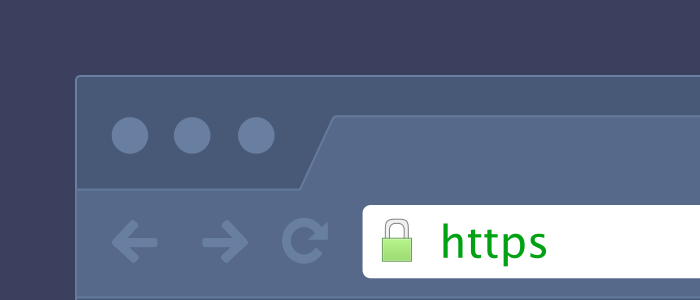Have you ever wanted to buy something online, but wondered if the website was actually legitimate? It looked professional enough and the prices were reasonable, but that little voice in your head couldn’t help but whisper, “Is this safe? What if it’s all a scam?”
Everyone wants to know that their credit card number, email, and other persona data are secure when they’re making online purchases. And when they don’t feel like it’s safe, they are far less inclined to buy.
That’s why SSL certificates are so important. Heard of them? You can tell a website is SSL encrypted when you see that little padlock in the browser’s address bar. You’ll also notice that the web address begins with HTTPS instead of HTTP.
We’ll explain the technicalities in a moment, but the key piece you need to understand is that having an SSL certificate means three things: Security, trust, and ranking.
How do SSL certificates work?
An SSL certificate ensures that all of the information communicated between your business website and your customers is sent securely. It goes like this: a user will type in your website URL, or maybe follow a link to land on your page. Their browser asks your website’s server to identify itself. The server sends back proof that your site is legitimate and secure: a copy of the SSL certificate. A few more backs-and-forths later, the user’s browser accepts that the website is safe and allows it to set up a secure connection. The page loads. And this all happens in a split-second.
Of course, web visitors can still access websites that don’t have SSL certificates. But when it comes to making a purchase or sharing personal information, they are going to be very wary of using sites without them. The certificate means that their information is safe. Websites without certificates have more vulnerabilities to hackers.
There are several different types of SSL certificates that offer different browser displays. While they all provide the same level of security, the type of display indicates to the user how much of a background check the issuing SSL provider has run on your business. For example, a gray padlock means a standard background check, while a green padlock or a bar with the company’s name means the SSL provider spent more time investigating the legitimacy of your business.

Just how important are these certificates?
Honestly, SSL certificates are a necessary part of running a safe website and successful business. And even if you’ve made it this far without one, the internet is changing. Here are two key facts to consider:
SSL certificates help you rank on Google
Google has called for “HTTPS everywhere“ as a way to make the internet safer. A big part of this is integrating HTTPS addresses (websites with SSL certificates) into their search ranking algorithm. Websites with SSL certificates will display higher in search results than websites without them. And there’s now talk of even giving users a warning when the website doesn’t have a secure connection.
SSL certificates build customer trust
It’s so much easier to maintain your customers’ trust than to rebuild it after a security breach. Gartner Research reports that nearly 70% of online shoppers have abandoned their orders because they didn’t “trust” the website. An SSL certificate builds trust in your business, often acting as that final push to buy. It shows that you know what you’re doing and you’re committed to keeping their private data private.
SSL certificates for InkSoft stores
In today’s software release, we’re preparing for the future and building out our SSL coverage. We’ve created this handy PDF describing SSL certificates available for InkSoft users. They come in a lot of shapes and sizes, and we’d love to help you pick out the best solution. Contact the InkSoft Success Squad for help choosing the right SSL certificate for your business.


